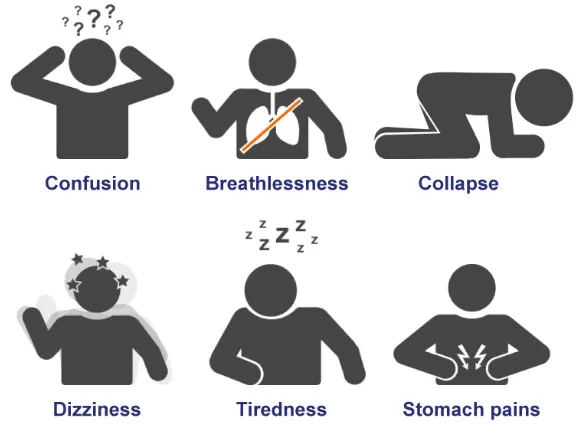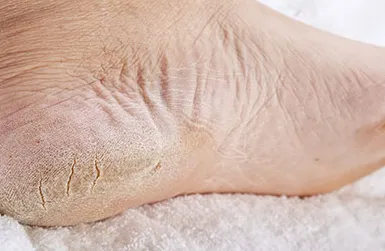Understanding Sleep Science: Tips for Improving Your Nightly Rest

Sleep is a crucial part of our overall health and well-being, yet many of us struggle to get the restful, rejuvenating sleep we need. The science of sleep has evolved over the years, uncovering how our bodies and minds rely on quality rest to function at their best. Understanding the underlying mechanisms of sleep can empower you to take control of your sleep patterns and improve your health. Here are some effective strategies based on the science of sleep to help you sleep better every night.
1. Understanding Sleep Cycles
Our sleep is not a uniform experience but a series of cycles that occur throughout the night. These cycles consist of several stages: light sleep, deep sleep, and REM (Rapid Eye Movement) sleep. Each stage serves a different function, such as restoring energy, consolidating memories, and promoting emotional well-being. Ideally, you should complete 4-6 full sleep cycles per night, which lasts around 7-9 hours for most adults. To improve sleep, it's important to maintain a consistent sleep schedule and avoid disruptions that can interfere with these cycles.
2. Create a Sleep-Friendly Environment
The environment in which you sleep plays a significant role in how well you rest. Darkness, quiet, and a comfortable temperature are key factors that promote quality sleep. Our bodies produce melatonin, a hormone that helps regulate sleep, in response to darkness. Therefore , keeping your bedroom dark—by using blackout curtains or minimizing light exposure—can improve your ability to fall and stay asleep. Additionally, a cooler room (around 65°F or 18°C) is ideal for promoting restful sleep.
3. Limit Stimulants Before Bed
Caffeine, nicotine, and alcohol can all interfere with your ability to sleep soundly. Caffeine and nicotine are stimulants that keep your brain alert, making it harder for you to fall asleep. Alcohol may make you feel drowsy initially, but it disrupts the deeper stages of sleep and can lead to nighttime awakenings. To improve sleep quality, avoid consuming these substances at least 4-6 hours before bed.
4. Establish a Bedtime Routine
A relaxing bedtime routine can help signal your body that it’s time to wind down and prepare for sleep. Engaging in activities that reduce stress and promote relaxation—such as reading, taking a warm bath, or practicing deep breathing exercises—can help activate the parasympathetic nervous system, which calms your body and mind. By consistently following a bedtime routine, you help your body associate these actions with sleep.
5. Mind Your Sleep Schedule
Going to bed and waking up at the same time each day helps regulate your internal clock, or circadian rhythm. Consistency is key to maintaining healthy sleep patterns. Even on weekends, try to stick to a similar schedule to avoid disrupting your natural sleep-wake cycle. Over time, this consistency helps improve your overall sleep quality.
6. Exercise Regularly
Physical activity during the day can promote better sleep at night, as exercise increases the amount of deep sleep you experience. However, be mindful of the timing. Vigorous exercise right before bedtime can increase adrenaline levels and make it harder to fall asleep. Aim to finish exercising at least 3 hours before you plan to go to bed for the best results.
7. Watch Your Diet
What you eat can also impact your sleep. Avoid heavy meals, spicy foods, and large quantities of liquids right before bed, as these can cause discomfort or the need to wake up for bathroom breaks. On the other hand, certain foods like turkey, almonds, and bananas contain tryptophan, which can help promote the production of melatonin, the sleep hormone.
8. Manage Stress and Anxiety
High levels of stress and anxiety are common culprits for poor sleep quality. If you find that stress is keeping you up at night, it’s important to find effective strategies to manage it. Practices such as mindfulness meditation, journaling, or even talking to a therapist can help reduce anxiety and promote relaxation, making it easier for you to fall asleep.
Recommended Companies/Websites for Sleep Products and Advice
1 Sleep Number (Smart beds and sleep solutions) Website: https://www.sleepnumber.com
2 Tempur-Pedic (Memory foam mattresses) Website: https://www.tempurpedic.com
3 Hatch (Sleep sound machines and night lights) Website: https://www.hatch.co
4 Casper (Mattresses and sleep accessories) Website: https://www.casper.com
5 Sleep Foundation (Sleep health information) Website: https://www.sleepfoundation.org
6 Purple (Innovative mattresses and bedding) Website: https://www.purple.com
7 Eight Sleep (Smart mattresses and sleep tracking) Website: https://www.eightsleep.com
8 Brookstone (Sleep gadgets) Website: https://www.brookstone.com
9 Amazon (Wide selection of sleep aids) Website: https://www.amazon.com
10 Molecule (Luxury sleep systems and mattresses) Website: https://www.molecule.com
Table of Comparison
<table style="width:100%; border: 1px solid #d3d3d3;">
<tr style="background-color: #f2f2f2;">
<th>Company</th>
<th>Products</th>
<th>Best For</th>
<th>Price Range</th>
<th>Website</th>
</tr>
<tr>
<td>Sleep Number</td>
<td>Smart beds, sleep accessories</td>
<td>Customized sleep solutions</td>
<td>$700 - $4000</td>
<td><a href="https://www.sleepnumber.com">Visit Website</a></td>
</tr>
<tr>
<td>Tempur-Pedic</td>
<td>Memory foam mattresses</td>
<td>High-quality support and comfort</td>
<td>$800 - $4000</td>
<td><a href="https://www.tempurpedic.com">Visit Website</a></td>
</tr>
<tr>
<td>Hatch</td>
<td>Smart sleep devices</td>
<td>Creating ideal sleep environment</td>
<td>$60 - $150</td>
<td><a href="https://www.hatch.co">Visit Website</a></td>
</tr>
<tr>
<td>Casper</td>
<td>Mattresses, pillows</td>
<td>Comfortable sleep surfaces</td>
<td>$400 - $1500</td>
<td><a href="https://www.casper.com">Visit Website</a></td>
</tr>
<tr>
<td>Sleep Foundation</td>
<td>Sleep tips, health information</td>
<td>Education on sleep health</td>
<td>Free</td>
<td><a href="https://www.sleepfoundation.org">Visit Website</a></td>
</tr>
</table>
Conclusion
Understanding the science of sleep can help you optimize your sleep quality and, in turn, improve your physical and mental health. By implementing consistent routines, creating a sleep-friendly environment, and managing factors like stress and diet, you can greatly enhance your nightly rest. Investing in the right sleep products and seeking expert advice can further support your efforts in achieving optimal sleep. Quality sleep is essential, and with the right tools and strategies, it’s within your reach.






